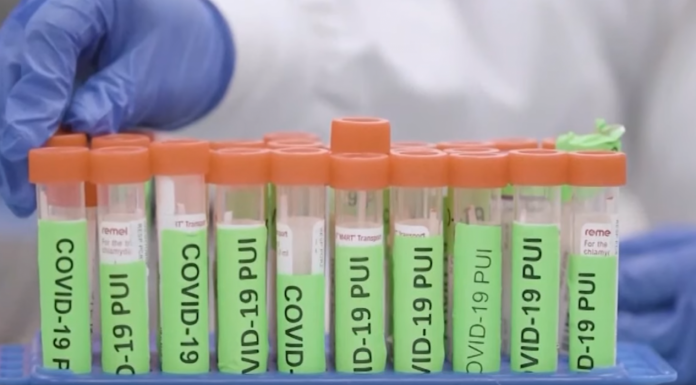The Centers for Disease Control and Prevention was forced to issue new guidance on Saturday warning individuals that the coronavirus vaccine might trigger severe allergic reactions.
In a statement, the CDC said individuals who have a history of allergic reactions to any of the ingredients present in the vaccine should not be inoculated.
“If you have ever had a severe allergic reaction to any ingredient in a COVID-19 vaccine, CDC recommends that you should not get that specific vaccine,” the CDC statement said.
“If you have had a severe allergic reaction to other vaccines or injectable therapies, you should ask your doctor if you should get a COVID-19 vaccine,” it continued. “Your doctor will help you decide if it is safe for you to get vaccinated.”
This guidance comes after several hospitals across the country reported multiple allergic reactions in individuals who had just received the vaccine.
The Food and Drug Administration is investigating at least five allergic reactions across multiple states—two of which happened at the same hospital in Juneau, Alaska, requiring one person to be hospitalized.
And in Chicago, a hospital temporarily halted vaccine administration after four staff members had allergic reactions upon inoculation.
“Out of an abundance of caution, we are temporarily pausing vaccinations at Condell, which will allow us time to better understand what may have caused these reactions,” Advocate Condell Medical Center said in a statement, noting that four staff members “experienced tingling and elevated heart rate shortly after” receiving the Pfizer COVID-19 vaccine.
Dr. Peter Marks, director fo the FDA’s Center for Biologics Evaluation and Research, said during a press conference that researchers aren’t sure what caused the allergic reactions, but identified polyethylene glycol as the potential “culprit.”
I think we’ll be looking at all the data we can from each of these reactions to sort out exactly what happened, and we’ll also be looking to try to understand which component of the vaccine might be helping to produce them,” Marks said.
“I think we have at this point the right … mitigation strategy with the availability of treatment for a severe allergic reaction being at the ready, and we’ll continue to monitor it very closely,” he added.

